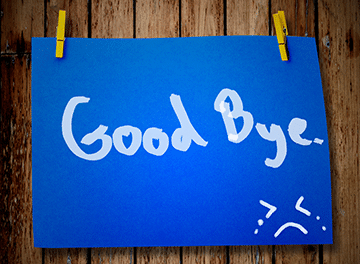The Big Day

3. Getting Your Family Through the Big Day
It’s moving day! The day you have been planning and packing for has finally arrived! Knowing what to expect and having a clear moving day plan can help ease moving day stress and that horrible feeling that you are forgetting something. Every move is different but here are a few ways you can help your family handle the big day:
Ensure Your Family Knows What to Expect
Remind your family what to expect on moving day; the more prepared they are, the less traumatic it will be. The preparing process is especially important for your children. If they are staying with you during the move, make sure they know exactly what to expect and what will happen. Simple reminders to your children about what is going on and what will happen will help them feel less afraid or overwhelmed. With smaller children, use simple phrases such as “we’re moving today” or “lets drive to our new home!” Even if your younger children or infants don’t understand, they will still be comforted through this kind communication and your tone of voice. It can be helpful to play out the move with your younger child using dolls, boxes, and a toy truck to help them get a feel for moving before the actual event. If you are having someone look after your children for the day, make sure your child knows where they are going, who they are going to, how long they will be there for and what to expect when they arrive at their new home.

"It would help to include them as much as possible in the planning stage, make everything as predictable as possible, make sure they know the timing and logistics of things well in advance and if possible make them part of the planning by incorporating their ideas and thoughts."Dr. Katherine Edward DClinPsych, Ph.D., MA, AFBPsS. Chartered & Clinical Psychologist (dredward.co.uk)
Provide Continuity
For babies and younger children, the stress of moving is likely to be directly related to the disruption in routine; therefore, you’re main aim should be to try to keep your little one’s routine as normal as possible. Make sure you keep familiar objects, toys, and bedding on hand. This is not the time to change cots or wash familiar smells away. It is also important that mealtimes do not vary from what your baby or child is used to.
Keeping Your Children Safe
If you are moving with a baby, you may want to line-up a babysitter, preferably someone that your baby knows well to look after your them during the chaos. With all the upheaval and your attention distracted, mobile little ones can be at risk on moving day. You may want to find someone your toddler knows well to look after them during the critical hours of the move, keeping them amused and out of the way while the moving vans are filled up and unloaded. If you are keeping them with you, a playpen filled with interesting toys can keep your toddler safe and out of mischief if you have to momentarily divert your attention elsewhere. You will be offered a lot of advice, often conflicting as to whether you should keep your children with you on moving day or arrange childcare. Keep in mind that you are the best judge of what's right for your kids.

“On the big day we arranged for our daughter to be at nursery (although a day with family or friends would have worked just as well) so that we could concentrate on the hard work of moving boxes and dealing with estate agents without a toddler running amok.”Emma Button (mellowmummy.co.uk)
Preparing Your Pets for the Move
We know that pets are important members of the family and we wouldn’t dream of missing them out. Smaller pets find the transition and transportation much easier. The best thing to do with smaller pets is to keep them in a quiet space before they have to be moved and make sure whatever you are carrying them in is stable and secure. It is also a good idea to drape a towel or cloth over cases, cages or carry holders to minimise stress or agitation. When transporting your pets, be careful to avoid loud music or sudden noises which may startle your pets. For larger pets such as cats or dogs, you may want to keep them in a quiet room or completely out of harms way on moving day. Always make sure you update the address of your pet’s microchip prior to the move.

“The most sensible thing we did was to put our cats in a cattery for a few days while we moved, sorted, and cleaned. It just meant we weren't worried about them going missing and when they came to the new house we were able to give them our full attention. It helped masses with settling them in.”Adele Jarrett-Kerr (Circus Queen) – (circusqueen.co.uk)
Get the Whole Family Involved
If you are keeping your children with you on the day of the move, keep your little ones amused and involved by giving them small tasks. For younger children, the move should be made into an exciting adventure, because it is one! Some children may be really excited by all the chaos and won’t want to be left out of the fun. The big removal van could be the most exciting thing to your child so allow them any joy or fun you can on moving day. Whether it is creating games and forts from your moving boxes or letting them decorate their own moving boxes, involve your child whereever there is fun to be had.

“Children cope better when they are part of doing something, rather than feeling it is being done to them.”Dr. Katherine Edward DClinPsych, Ph.D., MA, AFBPsS. Chartered & Clinical Psychologist (dredward.co.uk)

Take Time to Say Goodbye to Your Home
For toddlers and younger children who may not fully understand the move, it is a good idea to walk through each room of your house and say “good bye” to each. This may give them a better sense of what is happening and may even help them develop some sort of closure. Your teenagers might think it silly but this might also be a nice exercise for the rest of the family too, especially if you have shared happy memories in the house and have lived there a long time. Saying goodbye is an important way for your family to bring one story to a close before starting a new one.



